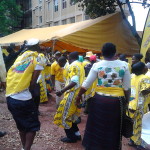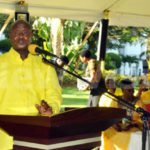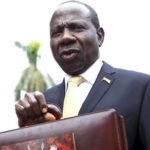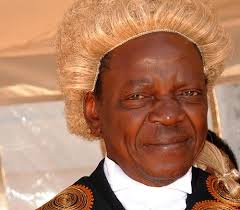
As Parliament meets to debate electoral reforms, an erstwhile unconsidered reform has been introduced by constitutional court: reform the way special interest groups are elected or do not elect them at all— the court ruled.
What that means is that mostly in tomorrow’s Parliament session, the national resistance movement, which is the singular beneficiary of the special interest representation, will have to introduce amendments proposed Parliamentary elections (amendment) bill 2015 or else it will lose twenty of its membership in the House.
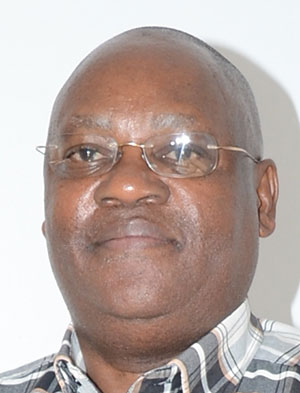
According to the government spokesperson and Deputy Executive Director, Col. Shaban Bantariza there will be an appeal filed tomorrow, Wednesday for stay of the execution.
The same day, Parliament will be convening to pass the three electoral reform bills with haste— so that MPs can return to their recess.
The bummer is that in case court does not honour the appeal, government risks missing a chance to sneak the ordered reform in the bills to be handled.
For NRM to move across this tight rope with confidence, it should needs to bring amendments when Parliament convenes.
Indeed, as this story was being written, the top brass of the party had their phones switched off. Those in the know but could not speak on record, because they are not the official spokesperson of the party, told Eagle Online that their bosses were locked in a meeting to agree on the way forward before Parliament convenes on Wednesday.
On Tuesday, the Constitutional Court declared that representatives for the army, the youth and workers in Parliament were elected unconstitutionally because they were elected to under an illegal system that only favours one side.
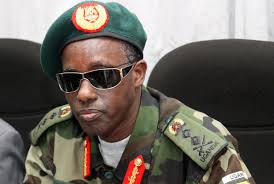
“The impugned law in relation to the election of the representatives of the army, youth and workers is void and we declare so in in accordance with Article 2 of the Constitution,” the ruling reads in part.
The ruling was drafted by a Coram of five Justices: Augustine Nshimye, Remmy Kasule, Ruby Opio, Richard Buteera, and Fredrick Egonda-Ntende.
“We do grant an injunction against the respondents restraining them from conducting elections for the special interest groups of the army, youth and workers under the law that we have found unconstitutional,” the learned justices ordered.
Ever since special interest groups were introduced in Parliament, the ruling NRM party has been treating them as an extension of their membership a thing that prompted a series of petitions filed in 2010 in which different concerned citizens were objecting to the procedures used.
Does the ruling throw out current MPs?

Interpreting the ruling Constitutional lawyer Peter Walubiri, who is also an opposition sympathiser, said it is not about the special interest groups, per se, because the constitution provides for that.
“If the elections are to be held they have to comply with the new direction of court. Now that this has happened, there is going to be a stampede by the NRM in parliament in trying to implement the amendments to fit in the 2016 road map.
“Hopefully they (NRM) fail and we get rid of them because they have been eating our money for nothing,” he said.
Lawyer and Lord Mayor, Eriasa Lukwago, however, thinks the affected members should cease being MPs.
“We welcome the ruling because the law under which they elected to Parliament was irregular. Secondly, they are not necessary in Parliament. For example, we have very old men representing the army but are always absent and even when they attend, they never contribute to the parliamentary debate,
“I only hope that President Museveni does not fight his way into having them back to increase numbers for voting in favour government positions because he is good at that,” he said.
Lukwago’s sentiments are shared with fellow Democratic Party member Medard Ssegona.
“Yes they cease to be MPs because according to the judgment, they were elected to parliament under an illegal law and therefore their stay in parliament is illegal as well. It is now up as parliamentarians to make sure that the court decision is respected.
“The question has always been whether we need these special interest groups in parliament since some of them do not even represent their constituencies. It is very important that court has pronounced itself on the matter. The petition has been before court for a very long time but the government did not bother to correct the law or settle the matter before court,” he said.

Bakabulindi is confident the ruling has no bearing on his being in the House.
“As far as I am concerned the ruling is only directing the Electoral Commission not to carry out elections because the current law is not clear until the law has been amended. Therefore, we are still in Parliament but if they insist on throwing us out we shall appeal,” he said.
Gen Tumwine hope the two arms of government will complement each other and do what is right to deliver good governance.
“The courts are balanced by the other two arms of government and I am sure the legislature can feel their (court’s) concerns by addressing the loopholes they have raised.
“But why didn’t they tell us earlier? They (special interest groups) are elected basing on the recommendations of the constitution but by the interpretation of the judges, they are helping in interpreting it,” he said.
UPDF represetatives
Gen. Katumba Wamala
Gen. Elly Tumwine
Gen. Aronda Nyakairima
Lt. Gen. Charles Agina
Lt. Gen. Jim Owesigye
Maj. Gen. Julius Oketta
Brig. Innocent Oula
Brig. Phinehas Katirima
Lt. Col. Sarah Mpabwa
Capt. Susan Lakot
Youth representatives
Anite Evelyn-Northern Region
Peter Ogwang-Eastern Region
Gerald karuhanga-Western Region
Patrick Nakabale-Central Region
Monicah Amoding-National Female Youth
Workers’ Representatives
Sam Lyomoki
Charles Bakabulindi
Arinaitwe Rwakajara
Theopista Nabulya Ssentongo
Mary Tuunde Nalubega





